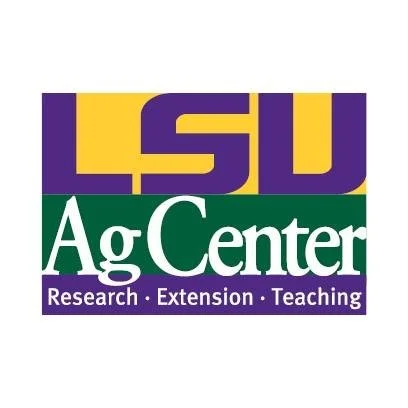The LSU AgCenter is partnering with Horizon Ag, a seed marketing and variety development company, to initiate a new rice breeding program focused on varieties for southern rice-producing areas, which include Louisiana, Arkansas, Mississippi, Missouri and Texas.
Read MoreThe LSU AgCenter was recently awarded a $1 million grant to focus on specific Best Management Practices in sugarcane and rice that address reducing greenhouse gas emissions and improving soil health. Three rice farms in Vermillion parish are participating in this project to determine the effectiveness and impact of these practices compared with a more conventional production system.
Read MoreLouisiana’s warm, humid weather provides a conducive environment for plant pathogens to quickly establish and spread. As a result, an important plant disease called southern blight has started to show up in Louisiana vegetable and ornamental production.
Southern blight is caused by the soilborne fungus Athelia rolfsii (Sclerotium rolfsii). The pathogen has a wide host range and is known to cause disease on various economically important vegetables (cucurbits, eggplants, peppers, potatoes, tomatoes) and ornamental plants.
Read MoreOn April 16, nine members from Tangipahoa Volunteers for Family and Community (TVFC) attended this year’s annual convention for Louisiana Volunteers for Family and Community (LVFC).
Tangipahoa Volunteers for Family and Community is an all-volunteer arm of LSU Agriculture Extension Service.
Read MoreThe Louisiana sugarcane industry has persevered for more than 225 years, even though it is a tropical crop is growing in a temperate environment. Growers regularly face a challenging climate, which includes the threat of early winter freezes before the crop is harvested. An early freeze can kill the sugarcane plant and cause the sugar (sucrose) inside of the stalk to deteriorate. Another challenge is the short seven-to-10-month growing season.
Read MoreThe LSU AgCenter is Louisiana rice farmers’ MVP, or most valued partner, in research and crop variety development. From creating a new market for jasmine rice, to producing varieties of rice that are better for diabetics and more sustainable and resilient to changes in the environment, LSU has been critical to the Louisiana rice industry for more than 100 years. The research also has world-wide impact since one-fifth of the global population’s calories comes from rice.
More than 60 percent of the rice Louisiana farmers plant was developed by the LSU AgCenter, with a direct economic impact of $580 million.
Read MoreBefore harvested soybeans are sold, they must be graded for quality. These inspections can be inconsistent. LSU AgCenter engineer Kevin Hoffseth is working on methods to use cameras and computers to generate a more accurate analysis of soybeans.
Read MoreThe southern United States, which includes Louisiana, is one of the nation’s leading commodity crop planting regions due to its intensive crop production systems. Soil is a complex and dynamic living system that is critical to agricultural ecosystem functions and crop productivity.
Read MoreThe domestic production of sugar in the U.S. originates from sugarcane harvested in Florida, Louisiana, and Texas and sugarbeets harvested across the Upper Midwest, Central Plains, Mountain states, Pacific Northwest, and California.
Sugarcane is harvested from October to March and sugarbeets are harvested in the late summer through fall, except for California where sugarbeets are harvested in the spring through the summer.
Read MoreIn a pocket of central Louisiana, a surprising crop for that area is taking root — sugarcane.
Sugarcane, a tropical crop, has traditionally been limited to south Louisiana. But by using precision breeding techniques, LSU AgCenter researchers are developing sugarcane varieties that can withstand colder temperatures.
Read MoreThe April WASDE report was neutral with no major surprises. Perhaps the most noteworthy piece of information was the estimate of U.S. ending stocks for the 2023/24 crop year. Prior to the release of the April report, the trade’s attention focused on the USDA’s estimates of the South American corn and soybean crops. Specifically, the difference between the USDA and CONAB estimates of the Brazil soybean crop (USDA’s 155 MMT versus CONAB’s 146.5 MMT).
Read MoreThe Congressional Budget Office’s February 2024 baseline for USDA Mandatory Farm Programs and the Supplemental Nutrition Assistance Program revealed projected outlays for Farm Bill-related programs at $1.46 trillion over the 10-year window from fiscal years 2025 to 2034 – this latest baseline projection is 3.5% lower than the previous 10-year baseline of $1.5 trillion.
May 2023’s baseline remains the Farm Bill scoring baseline until directed otherwise by the budget committees. In addition to this February baseline, CBO will release a new spring baseline following the release of the President’s fiscal year 2025 budget request.
Read MoreThe Louisiana sugarcane industry has persevered for more than 225 years, even though it is a tropical crop is growing in a temperate environment. Growers regularly face a challenging climate, which includes the threat of early winter freezes before the crop is harvested.
Read MoreA national group of scientists — including two from the LSU AgCenter — has released the Fertilizer Recommendation Support Tool, or FRST, a decision aid providing an unbiased, science-based interpretation of soil test phosphorus and potassium values for crop fertilization.
The FRST project is a collaboration of more than 100 soil science and agronomic professionals representing nearly 50 universities, four divisions of the U.S. Department of Agriculture, several nonprofit organizations and one private sector partner. This diverse partnership underscores the collective effort and expertise invested in the development of FRST.
Read MoreThe LSU AgCenter will hold its annual wheat and oat field day April 23 at the Tom H. Scott Research, Extension and Education Center in Winnsboro.
The event will be from 8 a.m. to noon, and a sponsored lunch will be provided.
Read More













